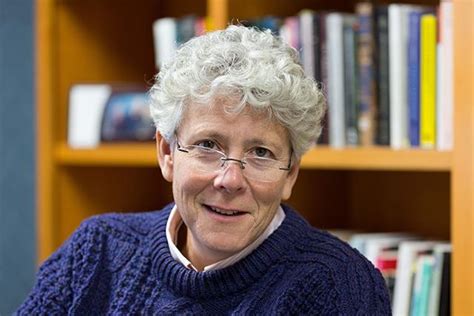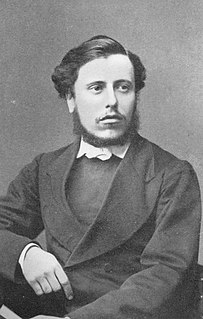A Quote by Eugene Green
In France, we have laïcité, which means that atheism is almost our state religion. But I think a very important part of Western culture is in the centuries when Christianism was dominant and was present in almost all works of art - not only liturgical works, but also literature and music. Yes, it's important to have that in our present. It doesn't mean that people have to adhere to a dogma or practice a religion, but it's part of our heritage, and you have to at least try to understand it. Otherwise you can't be a modern person.
Quote Topics
Adhere
Almost
Almost All
Also
Art
Atheism
Centuries
Culture
Dogma
Dominant
France
Heritage
Important
Important Part
Least
Literature
Literature And Music
Mean
Means
Modern
Music
Only
Otherwise
Our
Part
People
Person
Practice
Present
Religion
State
Think
Try
Understand
Very
Western
Western Culture
Which
Works
Works Of Art
Yes
Related Quotes
I really feel concerned about young people within our present culture. Our present culture, we have to change. Change is inevitable and I wasn't raised in our present culture but it has great pressure that as a young person I never had. Material pressure, social pressure, visual pressure, how you look, and I just try to appeal to young people to think for themselves, to be their own person, and to ask questions and also be very attentive to our planet and our environment.
You look at the Koran or the Bible, they all tell the same stories. You see them as the stories of the Middle East. The stories reflect who these people were in the Middle East, and this is where Western culture came from. All our literature is basically influenced by these great myths. So I'm fascinated by it. You could almost say I'm obsessed with it. But if you're asking about the effect of religion on my life - almost everything I do is opposed to the practice of religion.
Yes, the Bible should be taught in our schools because it is necessary to understand the Bible if we are to truly understand our own culture and how it came to be. The Bible has influenced every part of western culture from our art, music, and history, to our sense of fairness, charity, and business.
Religion is part of the human make-up. It's also part of our cultural and intellectual history. Religion was our first attempt at literature, the texts, our first attempt at cosmology, making sense of where we are in the universe, our first attempt at health care, believing in faith healing, our first attempt at philosophy.
Religion is an important institution. A nation without religion cannot survive. Yet it is also very important to note that religion is a link between Allah and the individual believer. The brokerage of the pious cannot be permitted. Those who use religion for their own benefit are detestable. We are against such a situation and will not allow it. Those who use religion in such a manner have fooled our people; it is against just such people that we have fought and will continue to fight. Know that whatever conforms to reason, logic, and the advantages and needs of our people conforms equally to Islam. If our religion did not conform to reason and logic, it would not be the perfect religion, the final religion.
Where it is the majority religion, Islam does not recognize religious freedom, at least not as we understand it. Islam is a different culture. This doesn't mean that it's an inferior culture, but it is a culture that has yet to connect with the positive sides of our modern Western culture: religious freedom, human rights and equal rights for women.
I think it's important that we do it [defeat ISIS] in concert with other nations in Europe, the Middle East, elsewhere if necessary. And that means you've got to work with people. You don't insult them. You don't insult their religion. And it means we have to see our entire country, all of the people in it, as part of our first line of defense.
We are living in a culture entirely hypnotized by the illusion of time, in which the so-called present moment is felt as nothing but an infinitesimal hairline between a causative past and an absorbingly important future. We have no present. Our consciousness is almost completely preoccupied with memory and expectation. We do not realize that there never was, is, nor will be any other experience than present experience. We are therefore out of touch with reality.
Let each of us examine his thoughts; he will find them wholly concerned with the past or the future. We almost never think of the present, and if we do think of it, it is only to see what light is throws on our plans for the future. The present is never our end. The past and the present are our means, the future alone our end. Thus we never actually live, but hope to live, and since we are always planning how to be happy, it is inevitable that we should never be so.
The issues which today confront the nation are clearly defined and so fundamental as to directly involve the very survival of the Republic. Are we going to preserve the religious base to our origin, our growth and our progress, or yield to the devious assaults of atheistic or other anti-religious forces? Are we going to maintain our present course toward State Socialism with Communism just beyond or reverse the present trend and regain our hold upon our heritage of liberty and freedom?
At the present moment in our culture this yearning for meaning and consciousness, this yearning to give and serve something higher than ourselves, is breaking through the hard crust of our widespread cultural materialism and pseudo-scientific underestimation of what a human being is meant to be together with an equally tragic overestimation of what we human beings are capable of in our present everyday state of being. The intensity of the present confusion about the nature and existence of God is a symptom of this yearning within the whole of our modern culture.
































